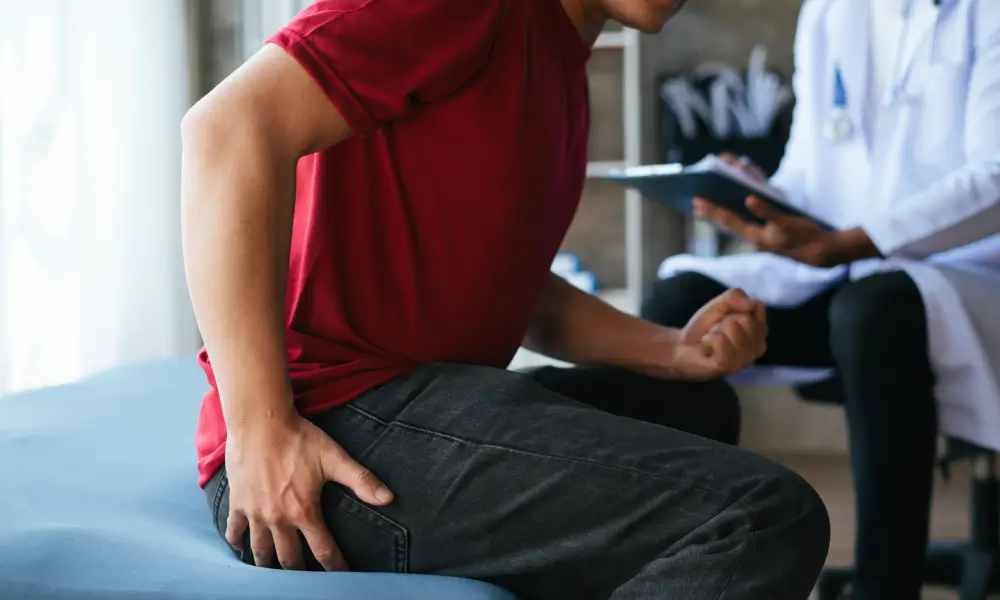Chronic Constipation: Causes and Effective Treatment Options

TABLE OF CONTENTS
Most people experience constipation at some point in their lives. However, when you experience two or more specific symptoms that last at least three months, it is classified as chronic constipation. Chronic constipation ranks among the most common digestive problems, affecting millions of people worldwide. This condition extends beyond just occasional bathroom troubles. People with this condition usually pass fewer than three stools per week or experience hard, lumpy bowel movements.
The digestive system's problems are more complex than they appear. Doctors have identified four distinct types of chronic constipation:
Normal transit constipation
Slow transit constipation
Dyssynergic defecation
Slow-transit-dyssynergic combination
Several factors can trigger these issues, from muscle dysfunction to lifestyle choices like diets enriched in meat, milk, or cheese. This condition impacts daily life and comfort a lot. It affects people across all age groups, and nearly one-third of adults over 60 deal with it regularly.
What is Chronic Constipation?
Chronic constipation makes it hard to have regular bowel movements for several months or longer. Regular constipation usually goes away quickly, but chronic constipation persists for at least three months and often needs a doctor's help.
Doctors diagnose chronic constipation when patients show at least two of these six symptoms for three months or more:
Straining during bowel movements
Hard or lumpy stools
Sensation of incomplete evacuation
The feeling of anorectal blockage
Need to use manual manoeuvres to help pass stool (such as digital evacuation)
Fewer than three bowel movements per week
These symptoms must occur at least 25% of the time. Loose stools rarely happen unless laxatives are used.
Chronic constipation comes in several forms. Some people have slow-transit constipation, where waste moves too slowly through their colon. Others struggle with dyssynergic defecation (also called pelvic floor dyssynergia), which makes it hard or impossible to pass stool. A third type happens with irritable bowel syndrome, where people switch between constipation and diarrhoea.
This condition can seriously affect your daily life. Many patients deal with stomach discomfort, bloating, and nausea. Without treatment, it might cause complications in areas where stool exits the body.
You should see a doctor if constipation lasts more than three weeks. This becomes especially important if you notice warning signs, like unexpected weight loss, blood in your stool, or severe pain.
What Causes Chronic Constipation?

Chronic constipation can develop from everyday habits or serious medical conditions. Your colon absorbs too much water if stool moves through it slowly. This makes the stool hard, dry and tough to pass.
Daily habits:
The bowels have trouble working properly without enough fibre from fruits, vegetables and whole grains.
Not drinking enough fluids leads to dehydration, which makes stools harder.
A sedentary lifestyle slows down the movement of your intestines. The same happens when you keep ignoring nature's call to use the bathroom.
Medications: About 90% of cancer patients who take opioid pain relievers experience constipation. Here are other common medications that can cause problems:
Antidepressants (especially tricyclics)
Calcium channel blockers for high blood pressure
Iron supplements
Antacids containing aluminium or calcium
Antihistamines
Antispasmodics
Diuretics
Medical conditions:
Irritable bowel syndrome
Neurological conditions like Parkinson's disease, multiple sclerosis, and stroke
Metabolic issues like hypothyroidism, diabetes, and hypercalcemia
Pelvic floor dysfunction: People with this condition can not coordinate their muscles properly during bowel movements. They feel blocked and can't empty their bowels completely, even when they need to go.
Other causes:
Pregnancy changes hormone levels and puts pressure on the intestines.
Your normal routine gets disrupted during travel.
The digestive system naturally slows with age, which explains why more than one-third of adults over 60 deal with constipation.
Doctors sometimes can't find a specific cause, even after a full picture. This leads them to diagnose chronic idiopathic constipation (the term "idiopathic" means "of unknown origin").
Effective Treatment Options for Chronic Constipation
Simple lifestyle changes can help manage chronic constipation before considering medication or surgery. Doctors recommend changing daily habits to help restore natural bowel function.
Dietary Changes and Hydration
Fibre intake serves as the best defence against stubborn constipation. Adults need 25-34 grams of fibre daily. You should gradually add these high-fibre foods to your diet:
Whole grains (oatmeal, bran cereals, whole wheat bread)
Legumes (lentils, black beans, chickpeas)
Fruits (berries, apples with skin, pears)
Vegetables (carrots, broccoli, leafy greens)
Nuts and seeds (almonds, peanuts, chia seeds)
Water plays a vital role since fibre needs fluid to work effectively. Good hydration softens stools and prevents bloating. Prunes deserve special attention because they contain sorbitol, which naturally draws fluid into the colon.
Exercise and Bowel Habits
Physical activity helps improve colon function and moves stool through your system. You should respond quickly to nature's call instead of holding it back. Setting aside 15-45 minutes after breakfast helps establish a routine because digestion naturally encourages bowel movement.
Laxative Options
Different laxatives can help when lifestyle changes don't work:
Fibre supplements (psyllium, methylcellulose) add bulk to stool
Osmotics (polyethylene glycol, Milk of Magnesia) draw water into the intestines
Stool softeners (docusate) allow moisture to penetrate hard stools
Stimulants (bisacodyl, senna) trigger intestinal contractions
Lubricants (mineral oil) help stool move more easily
Don't use much of either stimulant laxatives because overuse might lead to dependency.
Prescription Medications
Doctors might prescribe these medications for chronic idiopathic constipation that resists other treatments:
Lubiprostone
Linaclotide
Plecanatide
Prucalopride
Biofeedback Therapy
Biofeedback works by retraining pelvic floor muscles that don't work properly. This therapy teaches patients how to coordinate muscles needed for successful bowel movements. Research shows that about two-thirds of patients with pelvic floor dyssynergia get better with this approach.
Surgical Interventions
Surgery remains the last option for patients with severe constipation that doesn't respond to medication. Total abdominal colectomy with ileorectal anastomosis has shown success rates of more than 90% in carefully selected patients.
Conclusion
Chronic constipation brings its share of problems, but most people can manage it well. This condition affects millions of people worldwide, especially women and older adults.
Relief usually begins with simple lifestyle changes before you try medical treatments. Adding fibre-rich foods like fruits, vegetables, and whole grains helps your digestion work better. Your body needs plenty of water throughout the day to keep stools soft and easy to pass. Physical activity gets your bowels moving, and a regular bathroom schedule helps your body develop a natural rhythm.
Many people feel awkward talking about bowel habits, but open communication with doctors makes a difference. Quick action prevents complications and makes life better.
Getting better requires taking action quickly. The right mix of lifestyle changes & medical care can help you feel normal again.
FAQs
What are the main symptoms of chronic constipation?
Chronic constipation typically characterises as:
Having fewer than three bowel movements weekly
Straining during defecation
Passing hard or lumpy stools
Feeling incomplete evacuation.
These symptoms must persist for at least three months to be classified as chronic.
How can I naturally alleviate chronic constipation?
Natural remedies include:
Increasing dietary fibre intake through fruits, vegetables, and whole grains
Staying well-hydrated
Engaging in regular physical activity
Establishing a consistent toilet routine
Responding promptly to the urge to defecate is also crucial.
When should I consult a doctor about my constipation?
You should seek medical advice if:
Constipation persists for more than 3 weeks
It's accompanied by warning signs such as unintentional weight loss, blood in the stool, or severe abdominal pain.
Can chronic constipation lead to more serious health issues?
If left untreated, chronic constipation can potentially lead to complications, primarily affecting the areas where stool leaves the body. It can also affect quality of life a lot, causing symptoms like abdominal discomfort, bloating, and nausea.






